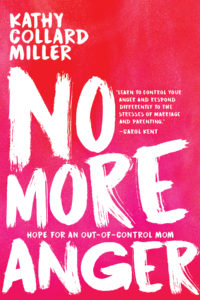S-E-T Your Marriage Up for Success!
Deb DeArmond loves to help people build sound, godly relationships. In this Marriage UPGRADE she challenges married people to boost their relationship with three important steps.

"Marriage may be easy one day, tough the next," Deb says, "But you can set yourself up to live happily ever after!"
I (Dawn) have experienced this in my nearly 45 years of marriage. Every relationship has its ups and downs, but we don't have to leave our relationships to chance. We can make choices for growth and stability.
Deb continues . . .
I’ve jokingly said I could never divorce my hubby, even on really rough days. But I could explain his sudden disappearance.
Face it, we all have our moments when it’s an uphill journey. So, let’s look at some tips to smooth out the path.
February is 2019 National Marriage Month—a good time to be sure you are S-E-T up to create, enhance or restore the health your marriage deserves.
After 43 years of marriage to my high school sweetheart—he’s still my favorite human—we continue to discover ways to be better together.
Take some time this month to S-E-T yourselves up with a few tools, tips, and tactics to make that easier each day.
S – Speak Up!
I’m grateful for the 400+ married couples who shared their stories with me during my research on the marriage books I’ve written. Surveys, focus groups, and interviews revealed info that stuns me.
The hardest to understand is the hurt, anger, or disappointment spouses experienced, but never shared with one another. Some major, some less so, but consistently damaging. They disclosed info to me they’ve never shared with one another!
When I ask, “Why didn’t you speak up?” the answers are universal:
- It won’t make any difference.
- He (she) should have already noticed.
- I don’t want to hurt or anger my spouse.
Our spouses know us well, but they aren’t mind-readers.
One friend shared he was stunned when his wife filed for divorce. She handed him an exhaustive list of offenses with dates and times going back 18 years. The problem was, it was the first time he’d known about any of it.
So, find your voice and speak up.
E – Engage Your Spouse
One way to keep communication healthy is to engage your spouse often in conversation. Draw out any issues that he/she may not have disclosed and share your own, too. The reasons are varied, but the bullets under "S" are the top three.
Ask open-ended questions designed to create understanding:
- “The new job has been overwhelming. I need your help. How would you feel about temporarily taking on more responsibility at home?”
- “How are you doing with the demand of the new promotion? How can I help?”
- “You seemed upset I cancelled our plans and we’ve not discussed it. How do you feel about it?”
T – Truth Must Partner with Love
Ephesians 4:15 exhorts us: “But speaking the truth in love, let us grow in every way into Him who is the head—Christ” (CSB).
Truth spoken without love doesn’t land well and seldom creates the intended outcome.
Truth expressed in anger, frustration, or hurt is still truth—but comes across as an attack and rarely changes hearts or minds. It often creates or escalates isolation.
Truth is most effective when we’ve managed our negative feelings and communicated with love.
Connect to create shared understanding is the goal.
It may require we delay the conversation, but we don’t defer it indefinitely. Once communicated, we can find our way to a Godly solution together.
Don’t delay! S-E-T yourself up for success today!
Which of the "S-E-T yourself up" tips could help your marriage most right now? Why? What would be different if you implemented these steps? How might your choices contribute to positive change in your marriage?
 Deb DeArmond’s passion is family—not just her own, but the relationships within families in general. Her first book, Related by Chance, Family by Choice: Transforming
Deb DeArmond’s passion is family—not just her own, but the relationships within families in general. Her first book, Related by Chance, Family by Choice: Transforming  the Mother-in-Law and Daughter-in-Law Relationships explores tools and tips to building sound relationships between mothers-in-law and daughters-in-law. Book #2, I Choose You Today, helps couples strengthen their marriages. Deb's newest book on marital conflict, Don't Go to Bed Angry, Stay Up and Fight! was co-authored by her husband, Ron. They live in the Fort Worth area. For more about Deb, visit her "Family Matters" site.
the Mother-in-Law and Daughter-in-Law Relationships explores tools and tips to building sound relationships between mothers-in-law and daughters-in-law. Book #2, I Choose You Today, helps couples strengthen their marriages. Deb's newest book on marital conflict, Don't Go to Bed Angry, Stay Up and Fight! was co-authored by her husband, Ron. They live in the Fort Worth area. For more about Deb, visit her "Family Matters" site.
Graphic 1 adapted, courtesy of D. Williams at Pixabay. Graphic 2 adapted, courtesty of Yolanda Sun at Unsplash.
 Post a Comment → Posted on
Post a Comment → Posted on  Tuesday, January 29, 2019 at 12:05PM
Tuesday, January 29, 2019 at 12:05PM  Communication,
Communication,  Communication Skills,
Communication Skills,  Communication in Marriage,
Communication in Marriage,  Deb DeArmond,
Deb DeArmond,  February,
February,  Marriage,
Marriage,  Marriage Month,
Marriage Month,  National Marriage Month,
National Marriage Month,  Upgrade with Dawn Upgrade Your Life
Upgrade with Dawn Upgrade Your Life  Marriage,
Marriage,  Relationships
Relationships 








